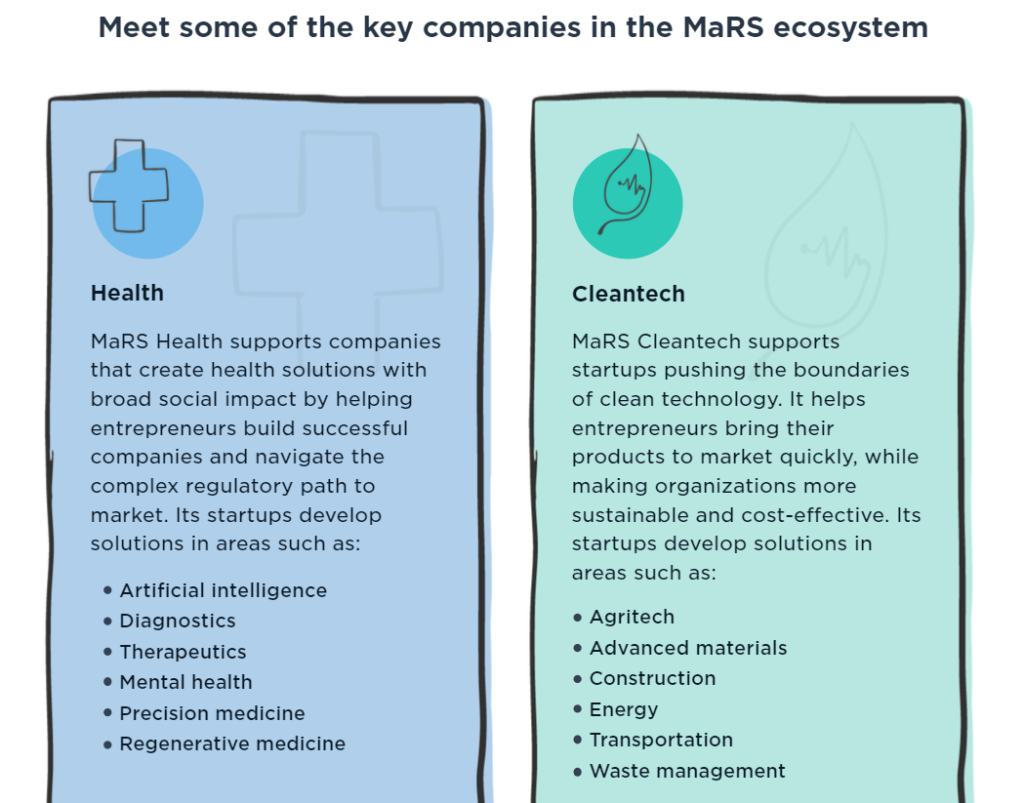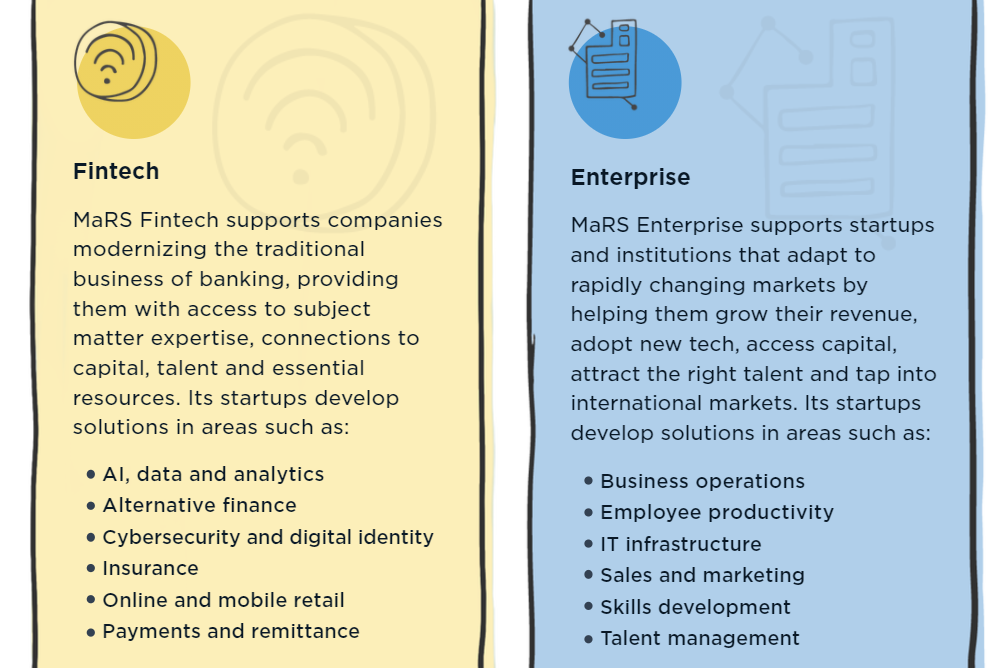Occupying 1.5 million square feet in the city center of Toronto, MaRS is the largest urban innovation hub in North America. Featuring a mix of historic buildings and glass-front skyscrapers, the area is a visual ode to the future of breakthrough technologies without forgetting its storied past. The Old Toronto General Hospital is just one of the iconic buildings in the district; it’s also where insulin was developed in 1921. Scientific research and discovery are the bedrock to the company’s core sectors: health, cleantech, fintech and enterprise—as well as the areas it’s actively expanding into: manufacturing and platform tech.
At its core though, MaRS is about meaningful innovation. For the nonprofit, this means helping high-growth startups gain access to customers, capital and talent while emphasizing financial success and social progress. The company believes that working with emerging technologies in its focus areas unlocks the potential to build global companies that solve real problems and create thousands of jobs.
“MaRS likes to say that it helps innovators solve society’s greatest challenges—climate change, disease, unemployment, etc.,” said Bronwyn McCarter, a Market Research Analyst at MaRS. “That may seem like a bold statement, but we are working with highly ambitious entrepreneurs who are solving problems in high-impact fields, such as developing cancer cures, building empathetic robots and delivering the next generation of hyperloops.”


The organization recently launched Mission from MaRS, a pan-Canadian climate impact challenge aimed at accelerating the adoption of climate-tech solutions. For the initiative, MaRS will be identifying promising ventures with technologies to reduce greenhouse gas (GHG) emissions, then work closely with them to remove barriers that have slowed their commercial growth. The goal is to get the international economy on track to a green future.
Even though these fast-growing startups have technologies that disrupt traditional industries, that doesn’t automatically mean success. The MaRS Knowledge and Insights team, where McCarter works, helps companies understand rapidly changing markets and raise investor capital—crucial components to building and maintaining a competitive company.
“Through the PitchBook platform, I’ll provide companies with data on the current fundraising landscape in their industry and capital insights on their peers and competitors, along with a highly curated list of venture capital and private equity investors who align with their investing mandates and profiles.” — Bronwyn McCarter, MaRS
Strengthening and informing their fundraising strategies with real-time data on the market has also opened doors to new sources of capital, especially throughout the COVID-19 pandemic. “We have increasingly leaned on PitchBook to help our startups identify and access sustainable sources of non-governmental growth capital in the time of COVID-19,” McCarter said.

MaRS companies, similar to others across the world, had to learn to adapt—and quickly—when the pandemic began. They also played a key role in advancing society throughout the crisis, not only solving challenges related to the virus, but also some of the ripple effects like digitizing business and driving financial inclusion.
“Over the past year, we’ve seen the connection between innovation and the economy grow stronger,” McCarter said. “The pandemic has demonstrated the resiliency of so many Canadian entrepreneurs and showcased their ability to make small or large pivots to meet the demands of the new economy.”
Article Credit: pitchbook

Pingback: Indian-Born Ajay Banga Confirmed as World Bank’s First Non-American President - SLSV - A global media & CSR consultancy network